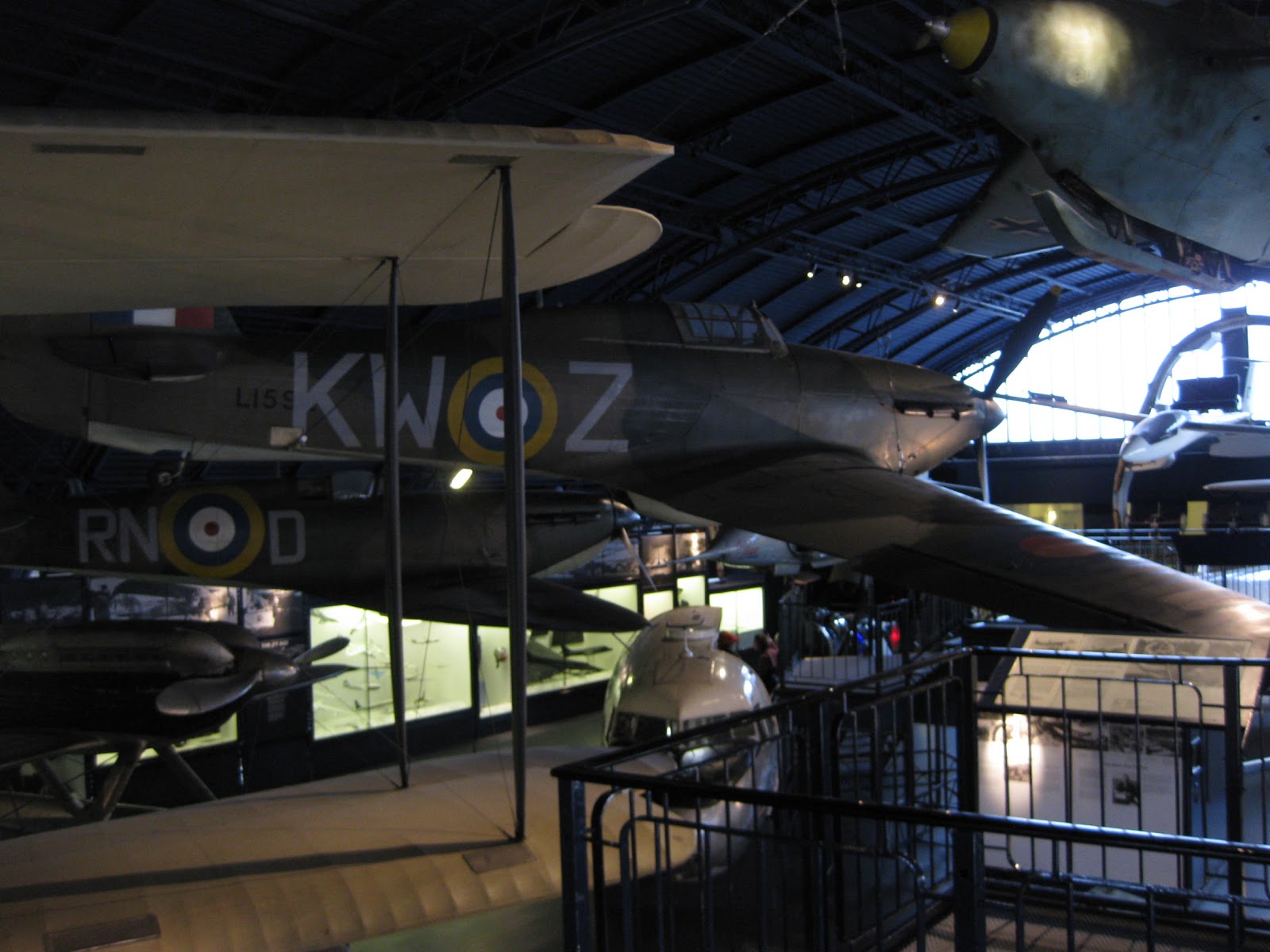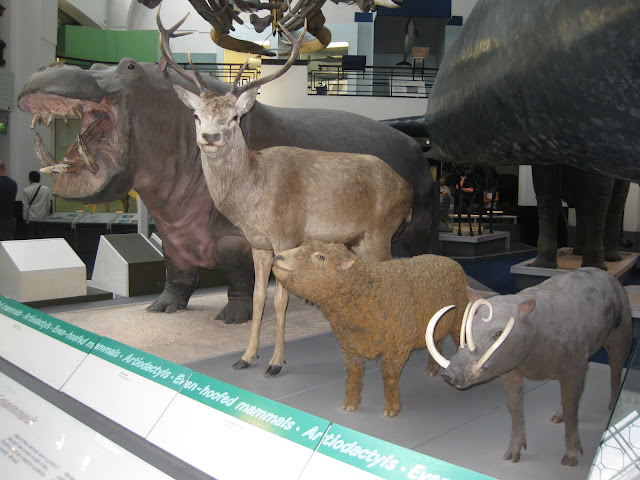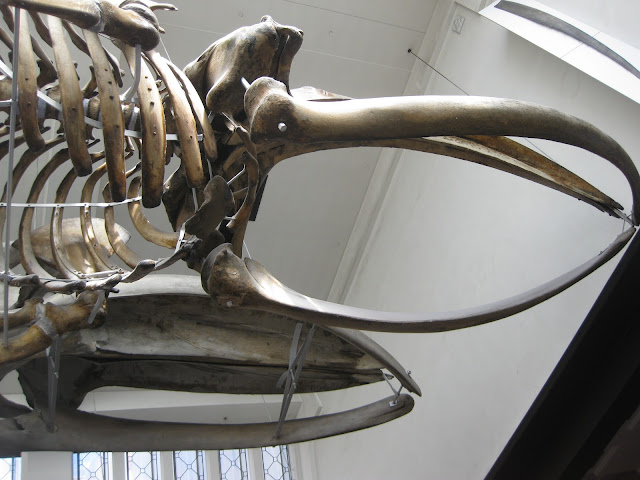With the approach of Christmas Eve we are very excited. English people prepare christmas tree quite early, at the beginning of December so adapting to the traditions we also have already one. My daughter and wife really enjoy it of course. Another local tradition is to present christmas cards to each other which was new for me. I mean the way how they deliver, face to face, instead of using the post office. Together with my colleagues, we also had a traditional christmas lunch including the Great British Carvery, christmas pudding, cracker, etc. Since the pronunciation of my first name sounds quite similar to the doughnut, I have got 16 ones for Secret Santa :-)
12/15/2012
12/01/2012
Good news
The Research Executive Agency made the decision about our proposal modification this week. They gave my host supervisor a call and informed him that it was a very unusual request but OK, accepted. So after 3 months I can absolutely focus on my new project without any concern....
11/25/2012
Weather
Weather is clearly the most popular topic at talking among British people. Extremity includes everything different from the average (cloudy sky, fog and drizzling rain). If the temperature drops down to 1-3 degrees, cold alert comes into force; if the sun emerges sunglasses and suncream are suggested (immediately). Anyway, you can see people wearing T-shirt with shorts on each day of the year :-)
11/18/2012
Last weekend, we went into Central London to see the christmas lights at the Covent Garden. After getting off the train, fell in with some interesing people celebrating the Remembrance Day.
11/10/2012
I think one of the best experiences so far is the high number of scientific presentations each week. Working at a world-wide renowned cancer centre provides you the opportunity to listen to talks of top-level (internal and external) scientists which is extremely motivating. Not only the info about cutting-edge technologies but also the ways of thinking presented are useful for young researchers. Sometimes it's really hard to decide which talk I should opt for. If you are planning your future in the biomedicine, I can highly recommend London as working place since this vivid scientific life makes you really obsessed.
10/24/2012
The good, the bad and the funny
The Good: Today, I attended a scientific workshop on single cell genotyping and next generation sequencing which was very useful. I don't have any experience in these techniques so really enjoyed it.
The Bad: We're collaborating with another group and gave them very important DNA samples which were collected during the past 20 yrs. After the first screening, they threw out the eppendorf tubes despite the fact we planned to do extensive downstream analyses.
The Funny: I had to drink a beer and the tapster asked me to show my ID card since I didn't look like 18. When I let him know my age everybody was laughing in the pub...(how did u freeze yourself? thirty-fucking-two? Oh my God...)
10/20/2012
Science Museum
Today, we have visited the Science Museum in London. It was a phantastic experience; very spectacular place with a lot of vehicles and other interesting objects from the ancient Egypt sarcophagus to the space capsule. The Museum gives home for several interactive programs as well.
The first steam engine from 1814.
10/15/2012
On Friday, we sent the modified version of the proposal to the Research Executive Agency. It was quite an exhausting work so I'm tired a little bit. Now, we are just waiting for the positive consideration...The outlined project is completely different from the original one. The disease of interest has been changed from multiple myeloma to acute lymphoblastic leukemia (ALL) which was quite reasonable since I already have some experience in ALL research (five papers in international journals) and my host group is absolutely in the forefront regarding this field. My current supervisor and his colleagues discovered in the '90s that the ALL, which is the most common cancer in childhood, may be originated in utero (before birth). They investigated monozygotic twin pairs concordant for ALL and found the same genetic aberration in both co-twins for which the most plausible explanation is that the first genetic event of the multi-step generation of the leukemia (leukemogenesis) occured in one twin and metastatised to the other co-twin via the shared circulation. I hope you also find it interesting...
9/28/2012
9/17/2012
Bad news
We have received the response from the REA. I have to re-write the proposal indicating all changes. It will be a huge task since our project significantly differs from the original one. Certainly, we can cope with it but anyway it's quite a time-consuming procedure so busy times are coming...
9/02/2012
Aquarium
My first salary was transferred this week so we decided to visit the SEA LIFE London Aquarium. Tickets were a little bit pricey but it's quite a spectacular show so I can suggest visiting it. For me the penguins were the most lovely animals jumping in and out the water all the time. Hanga (my daughter) enthusiastically run from one aquarium to the other and stroking a starfish completely fulfilled her desire.
Work
As I have experienced, all researchers who spent their postdoctoral training at an institute with high reputation remember and regularly mention the date when they eagerly walked through the door for the first time.
My first workday was on 1st August but the following day became even more memorable since an American group from the Mayo Clinic published two papers in Blood journal covering all the aimes/objectives we outlined in the Marie Curie proposal. Moreover, I had to acknowledge at least one of them as a very good and informative publication with an impressive conclusion and a complex methodology applied.
My first workday was on 1st August but the following day became even more memorable since an American group from the Mayo Clinic published two papers in Blood journal covering all the aimes/objectives we outlined in the Marie Curie proposal. Moreover, I had to acknowledge at least one of them as a very good and informative publication with an impressive conclusion and a complex methodology applied.
This is an example for you how science actually works in the real life. It's a hard competition and if you design a study with productive and influencing output it's sure that the idea will be come to the mind of others as well. The longer you wait the more chance of being passed. My field, cancer research, is a hot topic nowadays which is a double-edged weapon. You can acquire funding quite easily since the death is the most fearful aspect of Western people's life. On the other, this is the reason why the progress is extremely fast. You have to be farseeing and design a very competitive project proposal. However, in most cases, the deadline for funding applications is a year before the earliest possible starting date of the project implementation and you can't reduce this time period.
In summary, we have to come up with a good alternative plan now since my position is unchangable. If we insisted on working on the original project, publication of results in well-ranked journal would be impossible. Scientists can absolutely understand and accept this situation so we don't panic but only hope that decision-making people in Brussels think in a similar way. Anyway, a request for allowing the modification has been sent to the REA.........fingers crossed.
Natural History Museum
Last weekend, we visitied the Natural History Museum which was a memorable experience for all of us, especially for my three-year-old daughter. Since then she lists the most spectacular animals including the dinosaur skeleton each day before falls asleep. Travelling with public transport is the other thing enchanted her since she hasn't tried it ever before. Now, she throws herself into the exciting World of tube, trains, buses and trams.
8/31/2012
Olympics
Sorry for the radio silence, I had a lot of things to do. Please find below some photos from the first month. One of my friends bought tickets for the Games so we supported the Hungarian canoeists at the Eton Dorney during the 200m finals.
8/21/2012
Arrival
My plane landed on the Stansted airport at 8 am and the security control took only 3 minutes which was unexpectedly good especially considering the timing (Olympic games). After changing my coach at the Victoria station, I arrived at Belmont and promptly drank a traditional British tea with milk. My landlady was very nice and helped me a lot with settlement, administration, etc. By the end of the first week, I had a bank account and cell phone and found a house which we moved in on 16-18th August. The house was part furnished so I visited the IKEA and bought a lot of things from which the big ones (furniture) were delivered on Friday. My wife and our daughter arrived on Saturday so we are together at last :-)
8/05/2012
Introduction
In 2011, I attended the annual conference of the European Hematology Association (EHA) in London. The EHA meetings belong to the largest scientific conferences in Europe with more than 9,000-10,000 participants from all over the World. The high internationality was a very pleasent experience for me but more importantly, I could take the opportunity to visit Professor Mel Greaves' lab at the Sutton site of the Institute of Cancer Research (ICR). All people from his working group was very kind to me and after my short presentation, Prof Greaves agreed in serving as my host supervisor during a postdoctoral training period. One month later was the time when the EU's largest fellowship-providing programme, the Marie Curie Actions, came into our focus.
The Marie Curie IEF call was officially posted on 16th March, 2011. I met the host group on 9th June for the first time and we started to figure out the proposal from scratch on 8th July. The deadline was very tight (11th August) and I have never worked as hard as I did during the subsequent four weeks. Fortunately, some very kind people from the host institute helped me with writing the proposal and I also received invaluable advice from experienced experts at my home institute. Last but no least, I'm really grateful to my family for their tolerance and emotional support. After a thorough discussion and change of some 100 e-mails, the application pack was uploaded and there was nothing to do except of waiting for some months.
The post-application period in a nutshell:
20th October: Great news! The scientific peer-review process was completed and my proposal was selected as the best one in the category of 'Life Science'. Furthernore, there was a bigger difference in the scores between our application pack and the 2nd one than between the 2nd and 32nd proposals. (These results came to my knowledge because the three best projects were announced immediately after the review process.)
13th December: Invitation to negotiation.
11th January, 2012: The negotiation process was successfully finished.
6th March: After an ethical screening and refinement of the proposal, further ethical approvals were requested by the REA.
20th March: By that time, all the ethical issues had been cleared and the preparation of the Grant Agreement began.
30th April: The Grant Agreement signed by the EC was sent to the host institute.
15th May: I had to refuse a Fulbright Research Grant that was unharmonizable with the MC IEF grant because of the overlapping time periods.
20th June: The ICR sent the signed host-fellow contract to me.
13th and 24th July: I got very nice gifts from my close colleagues and they also organized a leaving party for me. We really liked working together. Thank you for all!
28th July: My flight to the UK.
Subscribe to:
Comments (Atom)













































